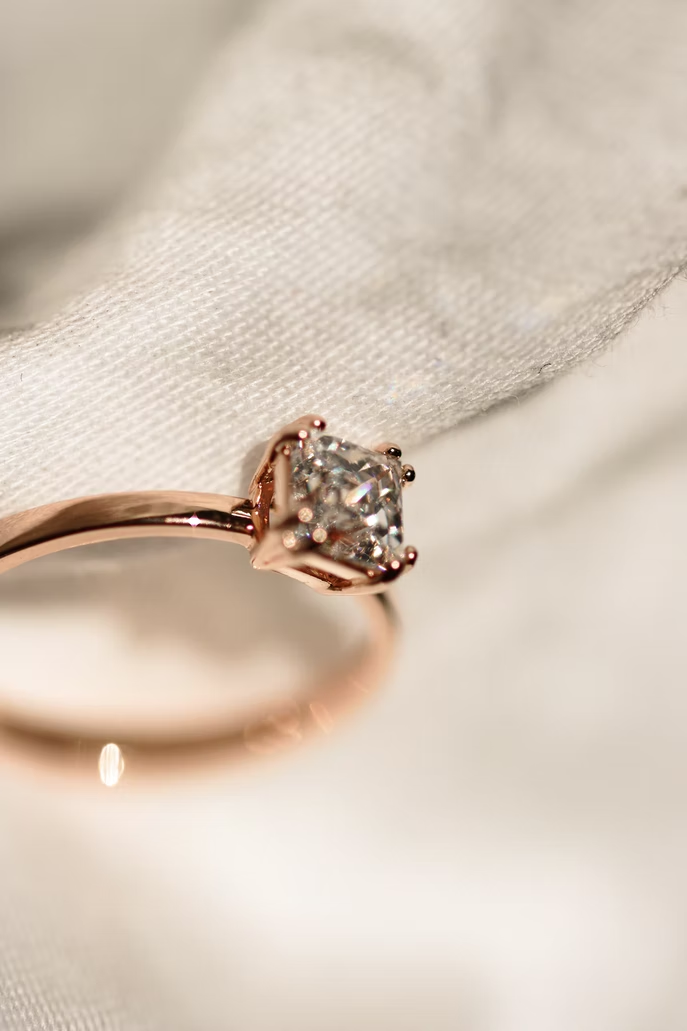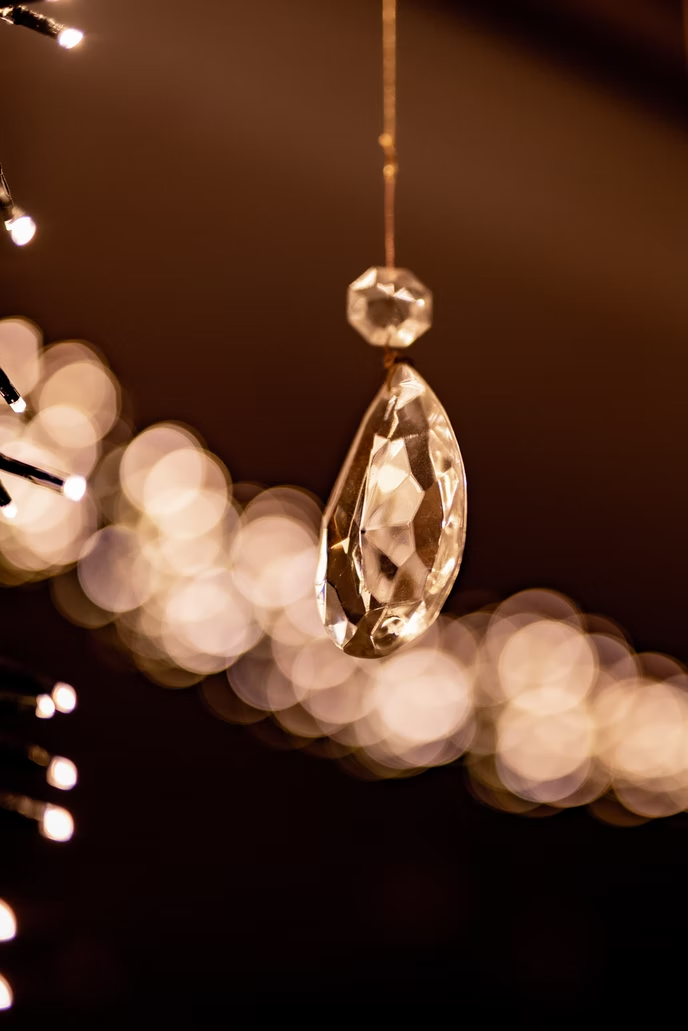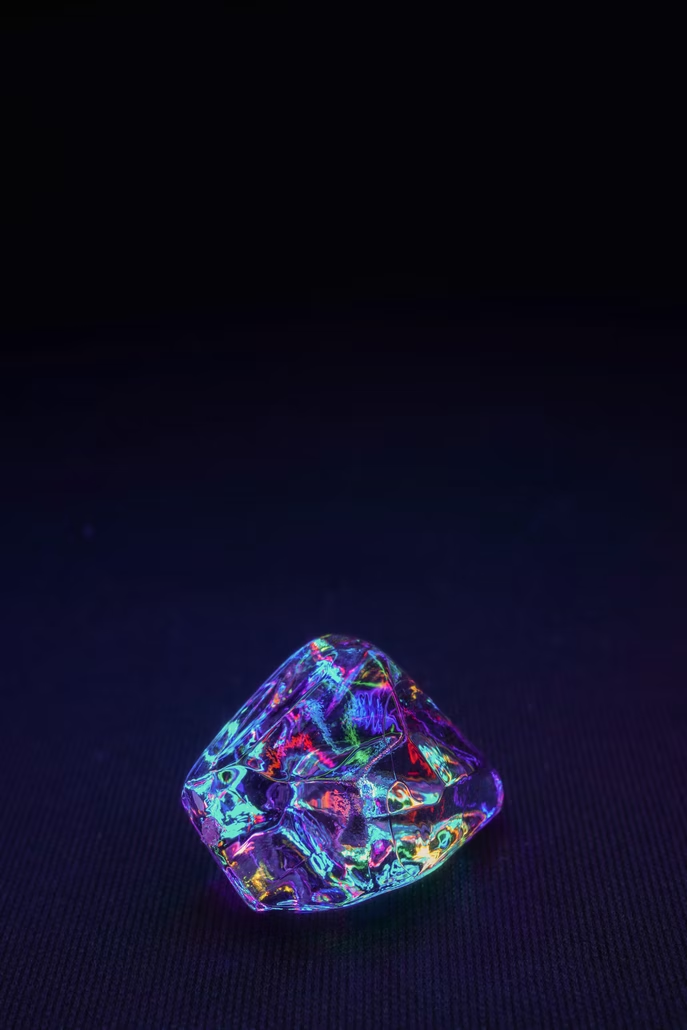Diamond Certificatesare special documents that grant many aspects about diamondsto evaluate them and prove diamond sellers and owners set the best price for their pieces. Thats why we develop this article with the best tip guide about Diamond Certificates and why they are important in the jewel industry.
What Diamonds Are Certificates?
Accredited gemological laboratories, such as the Gemological Institute of America, issue diamond certificates, or grading reports (GIA). The diamond certifications provide information and grades for each of the 4Cs– carat weight, color, clarity, and cut quality – of a diamond. A diamond's final grading has a significant impact on its price.
You should get and study the lab certification for each diamond you're contemplating. A grading body will produce a lab report or certificate that specifies several aspects of the diamond, such as color, clarity, length, and width. Using professional instruments such as a loupe or microscope, trained specialists assess, inspect, and measure the diamonds. Diamonds are graded and described differently by each entity, and the differences can be considerable. There are several lab entities, and it's crucial to recognize which ones are trustworthy and dependable.
The price and value of diamonds are not comparable across different certifications since diamond certificates are not created equal. Make sure you get a diamond that comes with a certificate from a respected grading company and that you inspect it thoroughly before you buy it.
What Things You Should Look In Diamonds Certificates
When it comes to comparing lab grade entities, consistency is more significant than grading strictness. The GIA, for example, does not grade diamonds in the same way that the IGI does. The Color and Clarity ratings, as well as the Cut grades in some cases, are only as reliable as the certifying lab's reputation.
However, if one lab routinely delivers a higher Clarity rating than another, that lab is not less "genuine."
Subjective Analysis
All diamond grading is subjective, and unlike common assumption, there is no centralized institution that statistically determines what a "G" color or "SI1" clarity looks like. It's totally fair and appropriate if one lab constantly names one color grade "G"while another continuously calls that identical color "H"—as long as they do it consistently.
It's vital to remember that just because an organization is constant in its grading doesn't indicate it's dependable and trustworthy. Purchasing a diamond with a poor certificate at a high price point is not a good idea, even if the entity routinely rates gems in this manner, because you are not receiving value for your money.
Diamond Price
Regardless of the certificate you obtain, the diamond's price should be carefully considered. Both on the certificate and to the naked eye, the price should represent the diamond's real quality, brilliance, and cut. If you're not sure if a diamond is priced correctly or excessively, get it evaluated by a diamond professional before you buy it. Please contact us if you have any inquiries about diamond pricing or certifications.
Results Can Differ From Lab To Lab
Every lab has its own peculiarities. Some people are more lenient when it comes to evaluating Color, while others are more lenient when it comes to assessing Clarity. Some laboratories will always upgrade specified color ranges, while others prefer specific inclusion patterns.
The expertise obtained from sending thousands of diamonds to different laboratories each month is put to good use by smart diamond firms to improve their outcomes. Knowing which laboratories are reliable and consistent will assist you avoid buying a diamond that is worth far less than the certificate claims.
Why To Certificate Diamonds?
As we said earlier diamond certificate is a thorough document that describes a diamond's distinct properties and attributes. A customer will be unable to evaluate the grade and worth of a diamond without the assistance of a diamond certificate from an independent diamond grading laboratory. As a result, it's critical that you have a diamond certificate from the jeweler.
To provide you piece of mind, reputable diamond jewellers will supply you with a diamond certificate right away. Be wary of jewelers that cannot deliver the diamond's certificate at the time of purchase and instead offer to mail it to you without first viewing or validating the certificate. A diamond certificate is also necessary for both resale and insurance purposes.
What The Difference Between Diamond Certificates And Valuation Certificates
There is a distinction to be made between a diamond certificate and a value or assessment certificate. A valuation or assessment certificate will indicate the monetary replacement value of the diamond or diamond jewellery piece for insurance purposes, whereas a diamond certificate outlines the features of a unique diamond and acts as verification of the diamond's identification.
When it comes to appraisals and valuation certificates, the document is purely based on the diamond's estimated worth. Year after year, supply and demand affect the diamond's value. Because appraisals might change over time, it's a good idea to have your diamond reappraise every two years.
In some situations, jewelers will attach an identifying number to the girdle of a diamond; the code on the diamond will correspond to the information on the diamond certificate. You'll be able to confirm that the diamond in the jewelryitem matches the diamond's certificate this way.
What Are The Most Important Diamond Certifications
GIA Certification
Certification by the Gemological Institute of America The GIA (Gemological Institute of America) is the most well-known and well-respected diamond grading organization in the world. They are extremely reliable and offer the best level of assurance when acquiring a diamond.
Color and Clarity, two of the most subjective measures, are graded more carefully by GIA.
GSA Certification
The American Gem Society (AGS) takes pride in being the first laboratory to produce diamond cut grades. The AGS has been presenting its distinctive cut grade scale from 0 to 9 for many years, even before the GIA released its cut grade a few years ago.
The AGS had a stranglehold on the "perfect cut" market in those days. An AGS certificate declaring "ideal" status is required for a diamond to be labeled "ideal."
However, when the GIA joined the cut grade market, their market share has decreased dramatically. The AGS aims to position itself as a more upscale and sophisticated alternative to the GIA. In truth, there isn't much of a difference between the two laboratories.
IGI Certification
The IGI (International Gemological Institute) originated as the diamond industry's blue-collar workhorse.
In 2003, the IGI's diamond certification laboratories in the United States and Canada were given certification, followed by labs in India and the United Arab Emirates. Organizations who maintain a quality management system for independent third-party testing, classification, grading, and certification of precious stones, jewelry, and polished diamonds are given ISO 9001:2000 certification. The certification certifies that the company's products and services comply with both customer and regulatory standards.
EGL Certification
The EGL (European Gemological Laboratory) inflates its quality claims wildly and inconsistently. You might assume you're getting a better value if you buy an EGL certified diamond.
In truth, the price is exorbitantly expensive for a subpar quality. Unfortunately, we've seen many consumers assume they've gotten a wonderful price on an EGL certified diamond only to discover they've been duped.
HRD Certification
HRD (Hoge Raad voor Diamant) is a European diamond grading organization. HRD claims to be the world's authority on diamond grading, despite not being widely accepted as a genuine alternative in the United States. We've noticed a lot of variation in HRD grading throughout the years.
They normally rate two color and/or clarity grades higher than the GIA. HRD-graded diamonds are often substantially more expensive than GIA-graded counterparts. Diamond firms may make large profits as a result of this.
GSI Certification
The GSI (Gemological Science International) is a very new grading organization with only a few years under its belt. Regrettably, they did not come to the businesswith new ideas or cutting-edge technology. They grew their company by appealing to major American retail chains such as Jared The Galleria of Jewelry, Kay, and Zales.
Obtaining those huge corporations entails millions of dollars in revenue. According to the Capital Forum, GSI grabbed Sterling's (parent company of Kay, Jared, and Zales) business away from IGI by constructing a laboratory across the street from their offices to make it simpler to collaborate and considerably undercut their cost.


